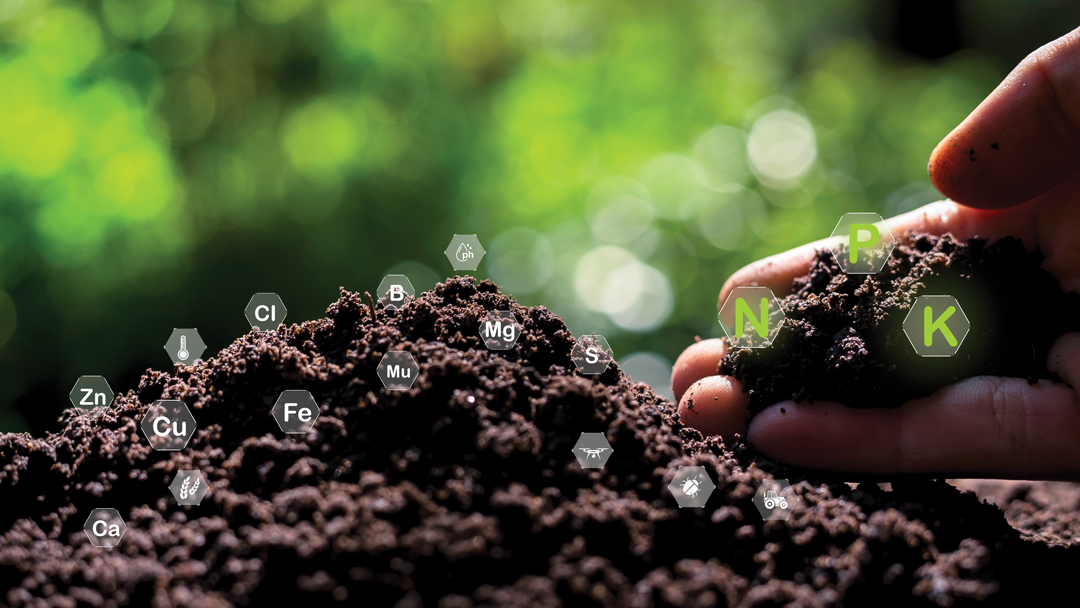A DASH OF BIG DATA
BY MELANIE EPP • PHOTO: SHUTTERSTOCK
As part of a two-year project, the University of Alberta is building the Database on Alberta Soil Health (DASH). The goal is to create an online resource that marries soil data with associated agronomic and climate data to generate recommendations for use by farmers, soil scientists and agronomists.
“What we’re really trying to do is bring soil science into the 21st century with big data,” said Derek MacKenzie, associate professor of soil plant relations at the Faculty of Agricultural, Life and Environmental Sciences.
As the project’s lead researcher, MacKenzie is creating DASH with the assistance of several collaborators. These include David Wishart, U of A biological sciences professor and head of the Wishart Research Group. The project is funded by Results Driven Agriculture Research and Alberta Innovates under the Smart Agriculture and Food Digitalization and Automation Challenge.
The portal will operate with the aid of an extensive array of soil sample data that has been collected from a variety of sources. These include soil survey reports, crop yield data produced by crop insurance companies and historic soil test data collected by soil labs and their corporate partners.
Also utilized is historic soil data derived from a 10-year Government of Alberta sampling campaign that used 44 benchmark sites across the province. Measurements include standard soil testing parameters such as pH, base saturation, total carbon and nitrogen, bulk density and fertility. In 2020, RDAR provided funding to resample these benchmark sites with the addition of soil health variables such as respiration, protein content and active carbon. The data will be organized with the assistance of machine learning software.
Under development since Jan. 1, 2022, DASH is scheduled to launch Dec. 31, 2023.
Though the uploading of datasets is nearly complete, the process will continue for a period after this date.
When the website goes live, farmers, agronomists and other interested parties will be able to sign up for an email newsletter that will alert subscribers to the start date for beta testing of the data portal.
Landowners will be able to upload their own data—soil information, yield and land management practices—for analysis. The machine learning algorithms within DASH will use the data to create a report card that offers management practices that target problem areas. For example, this might include the use of cover crops to reduce greenhouse gas emissions or the use of compost fertilizer to increase organic matter content. Farmers with good soil health could potentially use the report to negotiate better bank or insurance rates.
“Ideally, the database would be able to determine the amount of carbon sequestration that their overall farm management plan is capable of achieving, and that they could use that output for a carbon credit market,” said MacKenzie.
For those concerned about privacy, information uploaded to the database will be used to generate reports for site users, but individual farm data will not be made public. Ultimately, the goal is to help farmers adopt agronomic practices that improve overall soil health. “A highly functional agricultural soil is going to generate revenue through crop production and carbon sequestration, and it’s going to be sustainable in the future by having a very functional microbial community,” said MacKenzie.







Comments